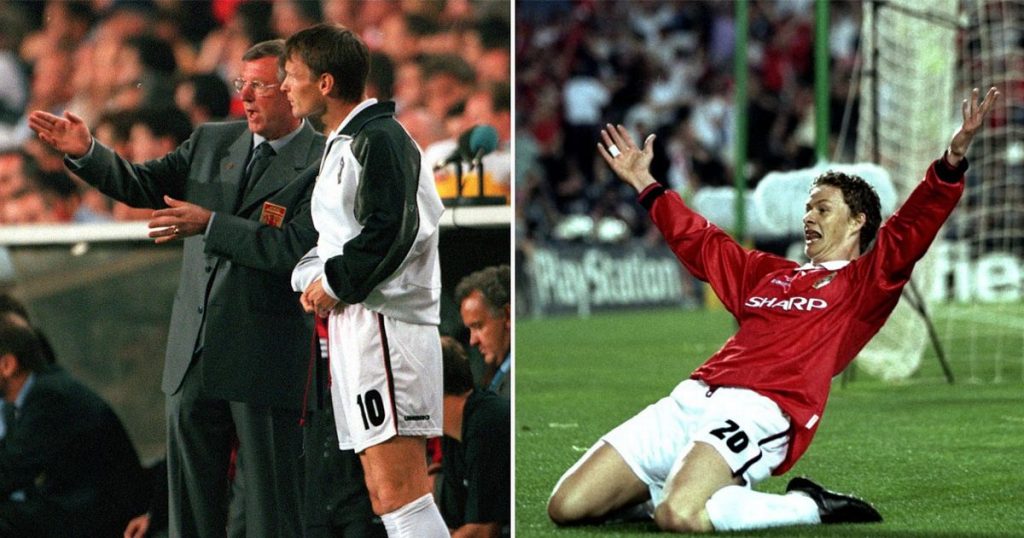In the 1999 Champions League final between Manchester United and Bayern Munich, with United trailing 1-0 and time running out, Alex Ferguson made a bold move by bringing on Teddy Sheringham and Ole Gunnar Solskjaer. This decision paid off when Sheringham scored an equalizer in injury time, leading to extra time. Ferguson’s assistant, Steve McClaren, expected a strategic change for the extra time, but Ferguson simply told him to sit back. United’s attacking play paid off again when Solskjaer scored the winning goal in the dying moments, completing their historic Treble-winning season. Ferguson’s bold, risk-taking instincts were pivotal in their comeback. Despite the high stakes, Ferguson remained calm and calculated, always focused on trying to win.
McClaren later reflected on the mood on the touchline, recalling Ferguson’s confidence that the game was not over even after equalizing. Ferguson’s strategic brilliance was evident as United continued to press forward, eventually securing the victory. His willingness to take risks and his unwavering belief in the team’s ability to win were key factors in their success. The iconic comeback victory in the Champions League final was a testament to Ferguson’s leadership and his ability to motivate and inspire his players. The team’s never-say-die attitude and Ferguson’s tactical acumen played crucial roles in their triumph.
Ferguson’s managerial philosophy was centered around taking risks and always striving for victory, even in difficult situations. His willingness to gamble and make bold decisions set him apart from other managers. The 1999 Champions League final showcased Ferguson’s competitive spirit and his desire to win at all costs. Despite the challenges his team faced, Ferguson remained focused on finding a way to secure the win. His emphasis on giving the fans something to celebrate reflected his dedication to the club and its supporters.
The 1999 Champions League final victory was a defining moment for Manchester United and Sir Alex Ferguson. The team’s achievement of winning the treble – the Premier League, FA Cup, and Champions League – in a single season was a historic feat. Ferguson’s leadership and decision-making in crucial moments were instrumental in their success. The victory not only secured their place in football history but also cemented Ferguson’s legacy as one of the greatest managers of all time. The celebrations that followed the victory were a testament to the joy and pride Ferguson brought to the club and its fans.
Despite Ferguson’s age and retirement from coaching, his impact on Manchester United and the sport of football remains significant. His ability to lead and inspire a team to greatness, as demonstrated in the 1999 Champions League final, is a lasting legacy. The lessons learned from Ferguson’s managerial style continue to influence coaches and players alike, highlighting the importance of courage, determination, and belief in achieving success. The 1999 Champions League victory will always be remembered as a remarkable moment in football history, thanks to Ferguson’s strategic genius and unwavering commitment to winning.


